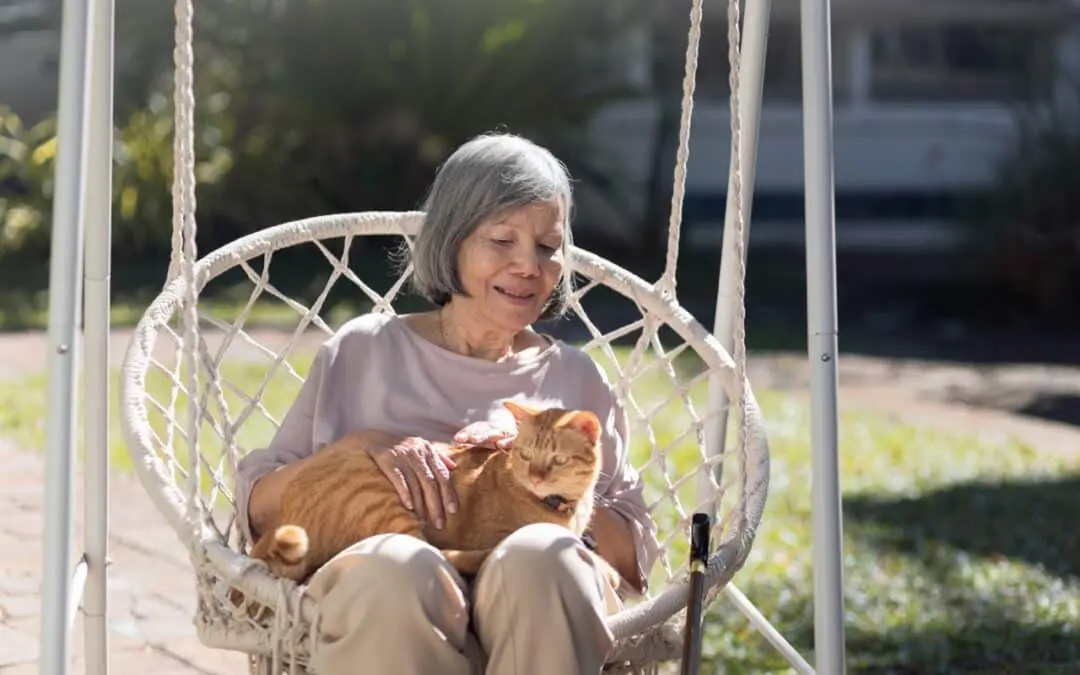Dementia is a heartbreaking illness that affects millions of seniors every year. While there is no cure for dementia, there are treatments that can help improve the quality of life for those who suffer from it. One such treatment is animal therapy. Animal therapy involves providing seniors with visits from animals, such as dogs, cats, and rabbits. These visits have been shown to provide many benefits for seniors with dementia, including improved moods and increased socialization. This article will discuss the benefits of animal therapy for seniors with dementia.
Contents
What Is Animal Therapy and How Does It Work?
Animal therapy, also known as pet therapy, is a type of therapy that uses animals to improve the physical, mental, and emotional health of people. Animal therapy can be used to treat a wide variety of conditions, including dementia.
Dementia is an umbrella term used to describe a decline in cognitive function. This decline can cause problems with memory, thinking, and behavior. Dementia can make it difficult for seniors to live independently.
Unfortunately, there is no cure for dementia. However, interventions such as animal therapy can prove to be very beneficial for seniors with dementia. Animal therapy can help seniors in terms of their mood, socialization, and overall quality of life.
What Are the Benefits of Animal Therapy for Seniors With Dementia?

Animal therapy can provide a number of benefits for seniors with dementia. These benefits include:
Improves Your Moods
One of the most common benefits of animal therapy is an improved mood. Studies have shown that interacting with animals can help to release feel-good hormones in the brain, such as oxytocin and serotonin. These hormones can help to improve mood, reduce anxiety and stress, and promote a sense of calm.
Therefore, animal therapy can be a great way to help seniors with dementia feel happier and more relaxed.
Improved Social Interaction
Another benefit of animal therapy is improved social interaction. Seniors with dementia often experience social isolation and may withdraw from activities and interactions with others. Animal therapy can help to reduce social isolation by providing opportunities for seniors to interact with others who are also interested in animals.
In addition, animal therapy can help seniors with dementia to form new relationships and bonds with people.
Improved Cognitive Function
Animal therapy can also help to improve cognitive function in seniors with dementia. One study found that seniors who participated in animal-assisted activities showed improved cognitive function, including memory and attention span, compared to those who did not participate in these activities.
In addition, another study found that seniors with dementia who participated in animal therapy had less decline in cognitive function over a six-month period than those who did not participate in animal therapy.
What Can Seniors Expect During Animal Therapy Sessions?
During animal therapy sessions, seniors can expect to interact with a certified therapy animal and their handler. The handler will help facilitate activities between the senior and the therapy animal, such as petting, grooming, or walking the animal. These activities can help promote socialization, communication, and motor skills in seniors with dementia. Animal therapy can also provide seniors with a sense of companionship and increase their overall mood.
Animal therapy sessions are typically 30-60 minutes long, and seniors can participate in as many or as few sessions as they like. There is no special equipment or attire required for animal therapy, but seniors should wear comfortable clothes that they can move around in easily.
If you are interested in exploring animal therapy for your loved one with dementia, talk to their doctor or a dementia care specialist to see if it is right for them. Animal therapy can be a great way to improve the quality of life for seniors with dementia and help them maintain their independence.
Is Animal Therapy Expensive?
Animal therapy can be expensive, but there are many ways to get around this. There are many organizations that offer free or low-cost animal therapy sessions for seniors with dementia. You can also look into volunteer opportunities at your local animal shelter or rescue organization. Animal therapy doesn’t have to be a financial burden, and there are many ways to make it affordable.
Is It a Good Idea To Get a Pet for Seniors With Dementia?
Getting a senior with dementia a pet is a different story because there are a lot of things that need to be taken into consideration first.
One big thing is if the senior will be able to take care of the pet and if they would even want to. A pet requires a lot of time, effort, and money to care for properly. If the senior isn’t able or willing to do those things, then it’s probably not a good idea to get them a pet.
Another thing to consider is the type of pet. A small dog or cat might be a better option than a bigger animal like a horse because they’re easier to take care of and don’t require as much space.
The last thing to think about is whether or not the senior has any allergies to animals. It’s important to make sure that they’re not allergic to the animal before getting them one because it could make their dementia worse.
If you think that animals would have a positive impact on your elderly loved one’s life, then try to consider animal therapy instead of getting a pet. This way, they can still interact with animals without having to take on the responsibility of owning one.
Conclusion
Animal therapy for seniors with dementia has many benefits and can help improve their quality of life. If you are considering animal therapy for a loved one with dementia, be sure to consult with their doctor first to ensure it is the right fit for them.

